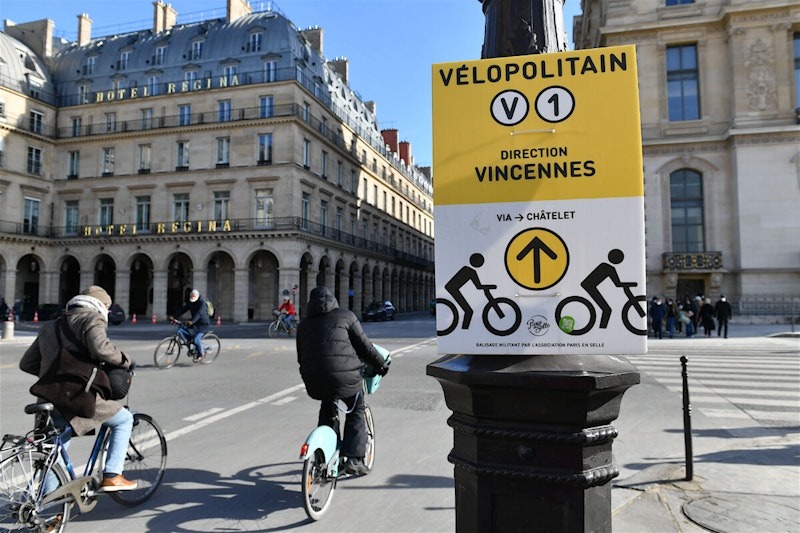In the News
The 15-minute city

28th February 2023
Have you heard of the 15-minute city? It’s a concept that has sparked much interest and some controversy in the last few months. If you are teaching (or studying) Changing places or Contemporary urban environment topics, it’s highly relevant to liveability and the process of place-making.

Paris is a trend-setter when it comes to the 15-minute city, promoting a vision of villages or communities within the French capital where everything a resident needs is easily accessible within a 15 minute walk or cycle ride. The idea is that your neighbourhood should provide six social functions: living, working, supplying, caring, learning and enjoying. This BBC feature is a great introduction to both the thinking behind it and the progress made in Paris since Anne Hidalgo, the current mayor, took office in 2014. 50km of bike routes have been added in recent years, cars have been banned from key inner city areas such as quays of the Seine and many schools have created mini green spaces for inner city-living children.
Carlos Moreno, the mayor’s special envoy for smart cities and a university professor of complex systems and innovation is widely regarded as one of the proponents of a drive towards localism in the capital's urban planning. The 15-minute city is a concept that chimes with the green agenda, making cities more sustainable in line with climate targets, but the pandemic has also galvanised some authorities into action Moreno believes:
‘Many people never visited shops close to their homes before because they were busy. They didn’t know their neighbours or the parks nearby’ he noted (in an interview with the BBC). ‘The pandemic made us discover this. We have rediscovered locality, and this has improved quality of life.’
The 15-minute city is not without controversy. Some commentators have suggested that it could result in greater social segregation, limiting social mobility, as less well off residents feel limited to their local area with facilities that simple don't compare to those of richer neighbourhoods. Questions have been asked in the UK Parliament about moves in British cities to support walkable neighbourhoods, for example, by Labour-run councils in Sheffield and Doncaster. Nigel Farage has taken a typically incendiary approach, suggesting traffic zoning in Canterbury represents the start of ‘climate change lockdowns’. Find out more about the current politics of planning in this Guardian overview.
I first came across the concept by happening upon this tweet online which piqued my interest.
Center Parcs is a 15 minute city.
— James Murray (@James_BG) February 14, 2023
The long list of comments that this quip on twitter garnered reflected the sparks of a debate which will, no doubt, run and run in the UK. And some of those complaining aren't wrong about the 'cost of living' in a Center Parcs village! I haven't been to stay in this international brand of holiday village for a long while, but have more recently experienced life in holiday sites marketed by 'Huttopia' (note the name) across France. Sure, it's not real life and yes, you crave to take on bigger challenges than a BBQ after a week there. However, I always feel rested. As settlements go, they are all well-appointed, more pleasant and less stressful environments to exist in, as a direct result of there being no access to your car.
But the 'go slow' or 'go slower' approach, which science tells us benefits mental health and the environment may yet be out of step with some people's politics in the UK. Clearly an urban world without automobiles is more than some people can stomach, apparently preferring to perpetuate atmospheric pollution problems and sit in traffic jams, than borrow another idea from Europe. It’s all about geography and scale, the 15-minute city.
You might also like

3 great simulation games for geography lessons
2nd February 2016

Help Your Team - Have a Pee
16th December 2015
Marine protected area to be created off Scotland
9th June 2019

Can e-bikes transform our cities?
8th August 2022

Hopeful Geographies 4: Women in Data & Women's Health
23rd January 2024